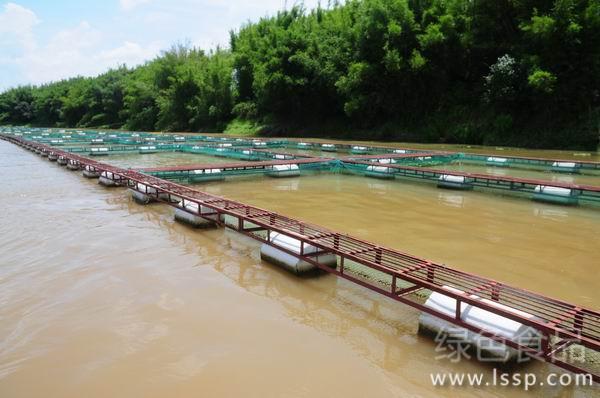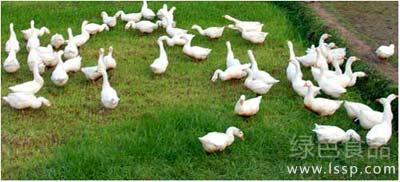Matters needing attention in production management of freshwater aquaculture in overwintering stage

Fresh water culture
After entering November, the production of most freshwater aquaculture varieties in Hebei Province ended, and some freshwater aquaculture varieties entered the overwintering stage. In order to ensure better economic benefits and do a good job in the overwintering production management of freshwater aquaculture, the innovation team of freshwater aquaculture industry in Hebei Province put forward the following technical guidance.
Maintain high water level and strengthen water quality control
After autumn, the air temperature and water temperature in Hebei Province decreased gradually, and the dissolved oxygen in the water was higher. Due to the large fish carrying capacity, more feeding, more residual bait and metabolite deposition in the pond, it is easy to produce harmful substances such as ammonia nitrogen and hydrogen sulfide by anaerobic fermentation. at the same time, the temperature difference between day and night is large, and the convection between the upper and lower water layer increases, which is easy to worsen the water quality. Therefore, we should keep the water level as high as possible, add new water or change water regularly, turn on the machine to increase oxygen at the right time, regularly use quicklime, chlorine preparation, iodine preparation and so on for disinfection, and use organic acid or sodium humate to complex toxic and harmful substances in the water body to improve the water quality environment. Microecological agents are used regularly to control water quality. Technical service institutions and qualified farmers should often test the dissolved oxygen, pH, ammonia nitrogen and nitrite in the culture water, so as to make the culture water conform to the NY5051 "pollution-free food freshwater culture water quality".
Before overwintering, we should remove more silt (use silt pump, etc.), fill the pond with water (keep it above 1.8m as far as possible), adjust the fat and thin water, maintain the appropriate amount of phytoplankton, and control the total amount of zooplankton. The ponds that have been out of the pond should be drained to clear the ponds, drain the pond water, remove silt, weeds and wild fish in the ponds, and use the ponds in winter and early spring to reduce breeding diseases and increase aquaculture production in the following year.
Improve feed quality and ensure overwintering survival rate
Before overwintering, we should seize the favorable opportunity to strengthen feeding. First, it requires good feed quality and comprehensive nutrition. Feed should comply with the NY5072 "safety limit for pollution-free food and fishery feed". The use of feed and additives without product quality standards, quality inspection certificates, production licenses and product approval numbers shall be prohibited. Prohibit the use of spoiled and expired feed; the second is to appropriately increase the proportion of feed protein, and add Vc and immune polysaccharides to improve the disease resistance and overwintering ability of aquatic animals; third, according to the weather, water quality, fish conditions, appropriately increase the amount of feeding, prolong the eating time, the amount of feeding in the evening should be appropriate, there should be no leftovers, so as to improve the utilization rate of bait, not only to ensure the rapid and healthy growth of aquatic animals, but also not to pollute the water quality.
Persist in patrolling ponds and do well in production management
Before overwintering, keep patrolling the pond in the morning and evening every day to check the activities and feeding of aquatic animals, check the water color and transparency, and fish out rotten grass and residual bait in time. For easy-to-escape breeding varieties, pay attention to check whether there are loopholes in anti-escape facilities and pool ridges, check the anti-escape facilities at the inlet and outlet, and strengthen anti-theft inspection at night.
Overwintering ponds should pay attention to snow sweeping and dust removal in winter, increase light transmittance, break 1 or 2 ice holes per mu, replenish new water at the right time, break ice in case of emergency, and increase oxygen with pumps, air pumps, aerators or aerators.
When the soft-shelled turtle (Trionyx sinensis) overwinters in winter, the keel density and strength of the greenhouse should be checked, the plastic sheeting damaged greenhouse should be repaired as soon as possible, the anti-aging non-dripping film should be selected to replace the plastic sheet, and the double-layer film can be selected if conditional. enhance the ability of wind and snow resistance and heat preservation effect. Keep the water depth above 1m to avoid freezing on the water surface. In case of heavy snow, snow should be removed in time.
Give priority to prevention and control of diseases
Before overwintering, we should follow the principle of "no disease first prevention, early treatment of disease", and adopt the method of "external elimination" and "internal administration". In addition to disinfecting the water body regularly, the disease should be diagnosed in time, the cause should be determined, and the national standard fishery medicine with high efficiency and low toxicity should be used to ensure the safe overwintering of farmed fish.
- Prev

What should dogs eat during pregnancy
My Schnauzer is pregnant, but how can you tell? Can you give him pig's feet? A: you can give it an ultrasound to determine its pregnancy. During pregnancy, you should gradually increase the amount of food, it is best to feed it only high-end dog food, can supplement nutrition tablets and calcium tablets. Proper exercise can be taken to prevent dystocia.
- Next

Technical points of "recommended Goose raising" to improve Economic benefit
Technical points of "recommended Goose raising" to improve Economic benefit
Related
- On the eggshell is a badge full of pride. British Poultry Egg Market and Consumer observation
- British study: 72% of Britons are willing to buy native eggs raised by insects
- Guidelines for friendly egg production revised the increase of space in chicken sheds can not be forced to change feathers and lay eggs.
- Risk of delay in customs clearance Australia suspends lobster exports to China
- Pig semen-the Vector of virus Transmission (4)
- Pig semen-the Vector of virus Transmission (3)
- Five common causes of difficult control of classical swine fever in clinic and their countermeasures
- Foot-and-mouth disease is the most effective way to prevent it!
- PED is the number one killer of piglets and has to be guarded against in autumn and winter.
- What is "yellow fat pig"? Have you ever heard the pig collector talk about "yellow fat pig"?

